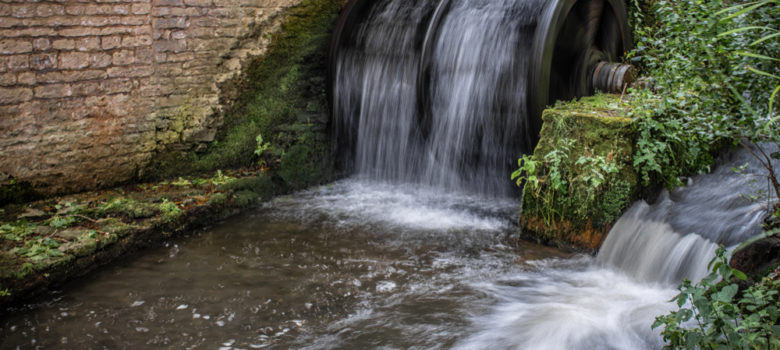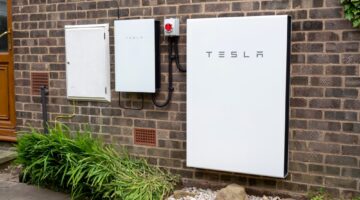
Hydropower has a long history, being one of the first technologies ever developed to produce predictable, virtually labour free energy. Originally used for mills and grinding flour hydropower has come a long way and is now an important part of our renewable energy system.
What is hydropower?
Hydropower generates energy from running water. As gravity causes the river or stream to run downwards the water is moved by kinetic energy. Hydropower harnesses this kinetic energy and converts it into usable electricity.
What types of hydropower systems are there?
Hydropower is an increasingly popular technology, and advancing all the time. That said there are three main types of system used in standard hydropower installations:
- A run of river system is the simplest and easiest to imagine. A uses the flow of an existing river to pass through a turbine, generating movement that is converted to usable energy. The major downside of this kind of installation is that it is entirely dependent on the strength of the water flow, which can fluctuate significantly over days, weeks and seasons. Despite this, it’s popular for domestic and small scale installations due to its simplicity and relative cost to install.
- The second hydropower option is a dam. In this system, the water is stored in a reservoir and released through a generation system when energy demand is high. It offers greater control than a flow of water system, allowing you to effectively dictate the water flow. will it possible to use this kind of system for small scale projects, dams are most often found in large commercial settings.
- Pumped hydro is the name for a system of reservoirs, dams and turbines, which move water around in order to store energy. It works in the same way as a dam, but to store energy and release it as necessary, as opposed to harnessing new energy. It’s essentially one big battery. While this kind of system is not viable on a residential scale, there are several projects ongoing in the UK for large scale pumped hydro storage to alleviate pressure on the National Grid and combat the intermittency issues that plague renewable energy.
Can I get hydropower for my home?
Although hydropower requires running water, not everyone with a running water source on their property can use hydropower. This is because there are several additional factors that need to be taken into account. Location and access are the first and most obvious considerations, however it is important to also factor in the angle at which the river flows, how much water passes through, and how the seasons affect the water flow and river levels.
Since it’s quite a skilled job to be able to judge a site for eligibility, and how performance can vary so much between locations, it’s very important to get a professional hydropower installer to do a site visit to evaluate whether your water source is appropriate for a hydro installation.
Is a hydropower installation expensive?
In short, yes.
Giving an estimate of cost is quite difficult since it depends massively on the size of the system and the specifications of the location. As a (very) rough estimate you might expect to pay between £20,000 to £30,000 for a standard 5kw system without any battery storage. Unfortunately, there are no government subsidies, grants or schemes currently offered for domestic hydropower projects. Given the expense and relative complexity of installing a hydropower system, a lot of hydropower projects in residential settings in the UK are installed on a community basis. If you’re considering hydropower and have that option open to you, it’s certainly one to consider.
That said, it’s worth noting that they do have a very long life expectancy. While a solar panel might last up to about 25 years, with a hydropower system you could be looking at more like 50 years.
It’s also worth noting that, owing to the restrictions described above (location, access, angle, water flow, cost, etc) there are not a large number of domestic hydropower installers in the UK. That’s not to say you wouldn’t be able to find one, but you might find that you have to look outside your local area.
Should I get hydropower installed on my property?
There are certainly pros and cons of getting hydropower installed on your property.
Hydropower is renewable, reliable, has a long life with very little maintenance, and produces power more consistently than alternatives like wind and solar.
On the negative side, it is an expensive system to install, and you may find that the limitations of your water source are more problematic than you might have originally expected. Additionally, although so hydropower energy generation is a more predictable form of renewable energy, it is highly seasonal.
Think we missed something? Do you have a different opinion?
Comment below to get your voice heard…












Let us not forget the impact that diverted streams or dams have upon aquatic life, especially fish migration.